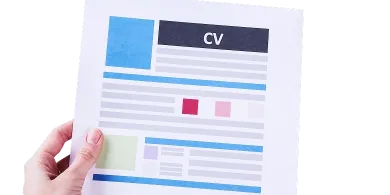Table of contents

Any job seeker has to write a solid resume, including the ones specified for the medical industry. Whichever type of document you need, a medical technologist, a doctor, or a resume for a medical assistant, it’s the only thing to ensure your future career success.
Indeed, you may visit a resume writing company and get a complete resume immediately. But we’re currently discussing the case when you write a resume alone.
Thus, let’s revise several mistakes people usually make when writing their medical resumes and, together with ResumeWritingLab’s resume writing consultants for healthcare professionals, try to find proper solutions.
One of the main problems of many resumes is not being specific. This is when an HR manager tries to figure out which specialization or medical field you’re applying for or which duties you should perform.
What’s the solution? According to advice from professional resume writing experts, it’s significant to state your job clearly.
 You think the time you had to study in a medical college is long gone. Thus, you might forget to mention your education there. Although, this is the wrong way of thinking.
You think the time you had to study in a medical college is long gone. Thus, you might forget to mention your education there. Although, this is the wrong way of thinking.
As our experts say, your education is crucial, especially when applying for a doctor’s position.
No matter how long ago you completed the course, your resume must include detailed information about your professional education, including CME hours and other training and certifications.
Remember that all employers look for experience, and practical certification training is a perfect way to prove your qualifications.
We’re always told to keep things concise and brief, especially regarding resumes.

Remember that it’s not your life or success story, so you can write about your patients’ treatment in such a serious document. Again, everyone knows that the resume has to be no longer than 2-3 pages.
Of course, the length depends on your experience level, qualifications, and desired job position.
Nevertheless, having little data isn’t a good sign for recruiters as well. At least, remember to sound persuasive and always show the results of your work.
You don’t want to represent yourself as an incompetent applicant, which makes no sense in distributing the most essential information from the one that makes your text even bulkier.
You may consider spring cleaning for your career since it is a way to get a fresh and catchy resume.
 How many resumes were sent to employers that have been unfortunately denied? Did you know the problem can sometimes be a lack of necessary buzzwords?
How many resumes were sent to employers that have been unfortunately denied? Did you know the problem can sometimes be a lack of necessary buzzwords?
Let’s imagine you’re writing a medical resume with powerful and persuasive content, but there are hardly any callbacks from applying companies.
What you should have done was use appropriate acronyms, as well as commonly used and relevant keywords, when describing medical assistant skills for your resume.
Please don’t make the content too elaborate; keep the language simple so HR managers won’t spend all their time trying to understand your point.
Doctors aren’t linguists, obviously, but there’s no reason for you to skip the proofreading part of your resume writing.
Furthermore, keep it in a proper and simple format—plain and easily readable fonts, capitalization, and italics (solely for headlines or underlining key points).
Sometimes, certain employers have certain demands, as they put some instructions on how their applicants’ resumes should look.
Not that it’s an obligatory matter, but demands are demandsб and if this is what the employer wants to see.
Check this psychiatrist resume example as a template, and help the recruiter see it; your chances will rise automatically!